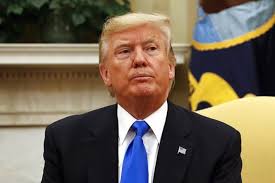SBI Raises Short-term Retail Fixed Deposit Rates Amidst Economic Shifts
In a recent move amidst economic shifts, the State Bank of India (SBI) has decided to raise the interest rates on short-term retail fixed deposits. This decision comes in response to various economic factors influencing the banking sector. The new rates are expected to affect millions of customers across the country, particularly those relying on short-term investments for their financial planning.
With this development, SBI aims to attract more deposits in the short-term segment, thereby enhancing its liquidity position and strengthening its lending capacity. The decision also reflects the bank’s strategy to adapt to changing market dynamics and maintain competitiveness in the banking industry.

Why this News is important:
Impact on Customers’ Financial Planning: The increase in short-term retail fixed deposit rates by SBI holds significant importance for customers, especially those who rely on such investments for their financial planning. The adjustment in interest rates directly affects the returns on investments, prompting investors to reassess their strategies and adjust their financial plans accordingly.
Response to Economic Shifts: SBI’s decision to raise short-term deposit rates comes amidst ongoing economic shifts, including fluctuations in inflation rates and changes in monetary policies. By adapting its interest rates, the bank aims to align its operations with prevailing economic conditions and maintain stability in the financial market.
Historical Context:
In the context of India’s banking sector, adjustments in deposit rates are not uncommon, particularly in response to changes in economic indicators and regulatory policies. Over the years, SBI and other leading banks have periodically revised their deposit rates to balance profitability, liquidity, and customer preferences. These adjustments often reflect broader economic trends and government interventions aimed at regulating the financial sector.
5 Key Takeaways from “SBI Raises Short-term Retail Fixed Deposit Rates Amidst Economic Shifts”:
| Serial Number | Key Takeaway |
|---|---|
| 1. | SBI has decided to raise the interest rates on short-term retail fixed deposits. |
| 2. | The move is aimed at attracting more deposits in the short-term segment and enhancing liquidity. |
| 3. | The adjustment reflects SBI’s strategy to adapt to changing market dynamics and maintain competitiveness. |
| 4. | The increase in deposit rates will impact customers’ financial planning and investment strategies. |
| 5. | This decision comes amidst ongoing economic shifts and regulatory changes affecting the banking sector. |
Important FAQs for Students from this News
Q1. Why did SBI raise short-term retail fixed deposit rates?
- SBI raised rates in response to economic shifts and to maintain competitiveness.
Q2. How will the rate hike affect investors?
- Investors may see increased returns on their deposits due to the higher rates.
Q3. What could be the implications of this move on borrowers?
- Borrowers might experience slightly higher borrowing costs as a result of the rate hike.
Q4. How often do banks review their interest rate policies?
- Banks regularly review their interest rate policies in response to changing economic conditions.
Q5. What should aspirants preparing for government exams understand from this news?
- Aspirants should grasp the practical implications of economic shifts on banking operations and monetary policies.
Some Important Current Affairs Links













